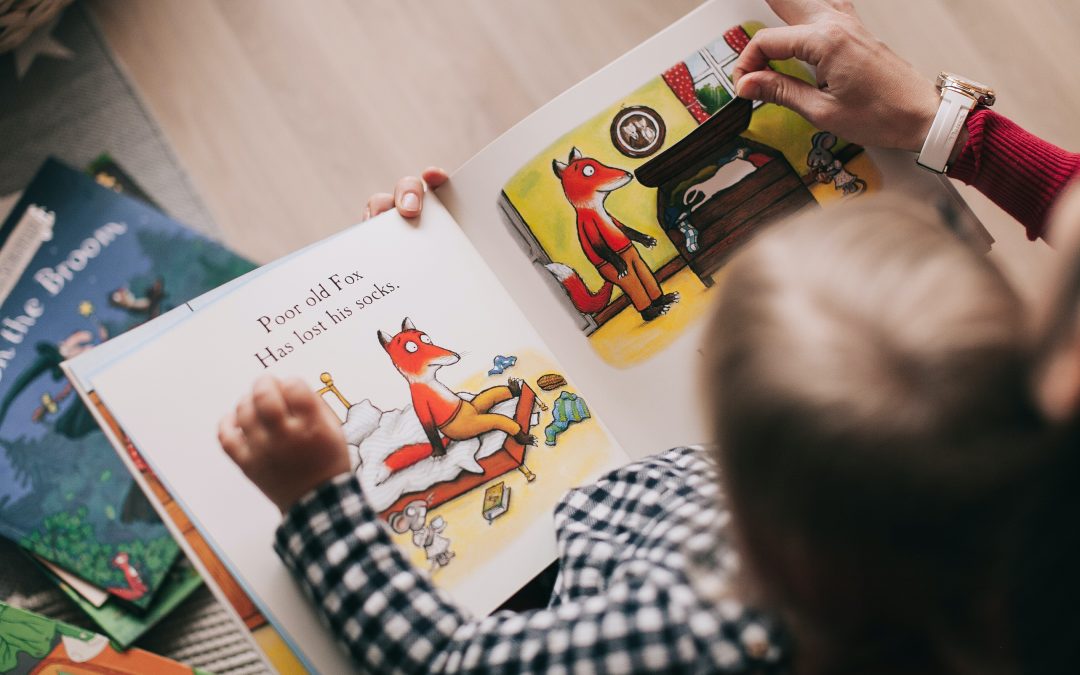Children grow and learn at their own pace, which means that they learn and develop skills at rates that may differ vastly from other children. It’s hard to tell when your child will learn a specific skill, but some skills can more or less develop at specific ages, such as pre-reading skills. (benchmarks we watch for)
Pre-reading skills lay down the foundation of your child’s reading success in the future. Developing pre-reading skills is essential for the child to develop a love and a desire for reading. Keeping watch of these skills will tell you if your child needs help in specific areas and requires reading support.
Here are a few simple things to do to help your child prepare for reading and ensure that they enjoy learning!
1 – Engage in games
It’s no secret that children love playing games, and engaging in play with your child could be a great avenue for learning! As a good first step for learning the alphabet, you can help your child learn the difference between the sounds that letters represent. (Learning sounds facilitates the learning of letters.)
Rhyming games, syllable counting, and identifying letters based on sounds or writing can be great activities for children to learn about the alphabet. Many children also enjoy playing “I Spy”, which you can play by saying, “I spy something that starts with the ‘f’ sound.” These games can help children learn the basics of sounding out letters and recognizing their written forms.
If your child struggles with these games, don’t fret. By playing these games with them, you can more or less point out what pre-reading skills your child needs help on. Having trouble reading or recognizing letters could also be a sign of dyslexia. Also, difficulty in reading and identifying sounds may signal that your child may benefit from a reading intervention program.
2 – Make practicing reading fun
If a child doesn’t find something fun, it’s likely that he/she may lose interest and develop a reluctance in doing that certain activity. As such, it’s important to make reading fun. Repetition is key to learning, but know that it doesn’t have to be boring. (let them hold the book or turn the pages) (do a picture walk) use imagination to go beyond the text – predict, alternate endings, tap into social skills by asking how you would ffel or what you would do)
It’s important to read aloud to your child and make it as interesting as possible by acting out some of the actions, or reading about something your child is interested in, like animals, cars, toys, fantasy worlds, or space. Enunciate the words clearly to help them distinguish sounds, and help them understand what the story is about. You can also ask them questions while you tell your story to keep them engaged and to help yourself assess if they understand it. The key is to keep it light and fun and to help them feel that the activity is not something you’re forcing them to do.
It’s also important to expose your child with other media to keep them interested in learning about letters and reading. Toy letter blocks, magnetic letters on the fridge, or simply asking them to identify letters in signs could help them develop a love for reading.
3 – Prevent early reading problems by working on oral language
Experts postulate that any early problems with reading should be taken seriously. If children struggle with a letter, word, or certain sentences, parents should not hesitate to reach out for help straight away.
There’s a way to curb the onset of these problems, however. Before starting school, (promote oral language development)
foster an interest in books by exposing them to print and colorful photographs. Slowly build reading by pointing out and naming letters, and encourage any skill of attempting to read words with sounds. As soon as the child enters kindergarten, you’ll find that connected printed letters with sounds and words will be easier, making them ready to read more difficult words.
Conclusion
There is no sugarcoating it: there is a ton of work that goes into teaching a child how to read, in addition to the preparation. Books are dedicated to reading preparation alone because there is so much you need to consider. However, there’s no need to be overwhelmed. The three tips above touch on everything you need to know. Remember: patience is key!
If your child is experiencing difficulty with reading, never hesitate to reach out for help.
We offer reading programs in Calgary, dedicated to helping children overcome learning difficulties. Contact us today – we believe that there are things schools cannot teach your child, and we exist to fill those gaps!

